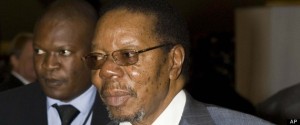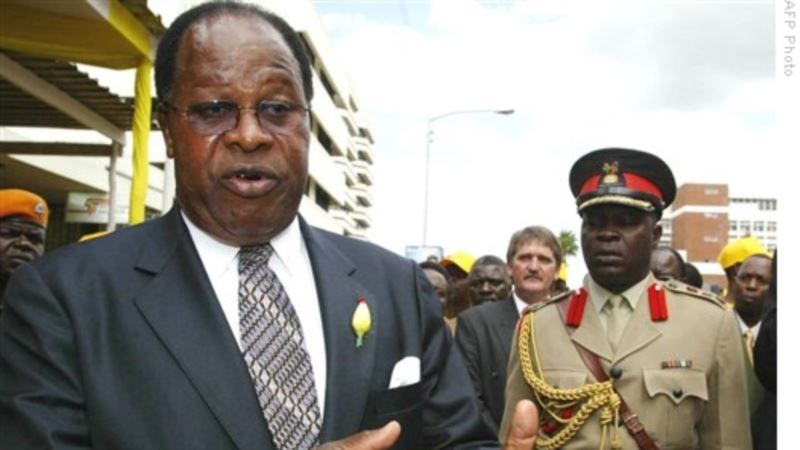By Steve Sharra
Several comments made about the departed president by a number of Africans from various countries, and a few non-Africans, seem to paint a picture of a man Malawians do not seem to recognise. He has been called a visionary leader, a Pan Africanist, and an anti-imperialist, among many other colourful adjectives. Is that the man Malawians knew?

Landing at Chileka International Airport for the funeral of the late president on April 22nd, Tanzanian president Jakaya Kikwete gave a glimpse of how differently Mutharika appears to have been perceived by Africans outside Malawi, particularly in his last days. Kikwete said Mutharika was a visionary leader. He said every time they met, Kikwete learned something new from Mutharika.
Speaking at the burial, the Dean of the diplomatic corps in Malawi, Zimbabwean High Commissioner to Malawi Thandiwe Dumbutshena, repeated the statement about Mutharika being a visionary who had big ideas for Malawi and Africa. She said Mutharika liked to question conventional wisdom, and asked for evidence before accepting anything, a trait also mentioned by Raphael Tenthani in his ‘Muckraking on Sunday’ column (Sunday Times, 22nd April). Dumbutshena said this made Bingu look as if he never listened to other opinions.
On April 12th the state-run Zimbabwean newspaper, The Herald, ran an opinion piece by two Zimbabwean academics, Darlington Mahuku and Bowden Mbanje. Mahuku and Mbanje wrote that Africa had lost “one of its illustrious sons.” They found it “disturbing and shocking . . . that some sections of the Malawian population celebrated his demise.” To them, Mutharika was a “radical Pan-Africanist” who sought to wean Malawi out of donor dependency. For his part, American academic and advocate of more aid for Africa, Jeffrey Sachs, wrote in a New York Times op-ed that pointed out Mutharika’s first term achievements and second-term failings. It ended with the sentence “Mutharika helped put Africa on a path out of poverty and hunger.”
How did Mutharika manage to create such contrasting images between Malawians and other Africans? Even in his last days he talked of how outside Malawi people stopped him to ask admiring questions about how he had transformed the country. What was it that other Africans saw in the man, that Malawians didn’t? And what did Malawians know about Bingu that other Africans didn’t? Some have opined that he lacked diplomacy in his public speeches. Others have said he had a very poor public relations machine. Yet others feel that he blundered in choosing to directly respond to each and every criticism leveled against him, instead of letting his cabinet and other officials do that for him.
All three explanations risk being interpreted to mean that there was nothing fundamentally wrong with Bingu’s presidency, it was all a matter of appearance. A lot of the debate on Mutharika’s leadership style has been characterized by a bifurcation of two extremes; either he was Malawi’s worst president, or he was Malawi’s best president thus far. Dualistic views are always unhelpful in trying to understand a complex problem, but they are an easy resort in the absence of handy explanations.
Mahuka and Mbanje are correct to observe that Mutharika preached an end to donor-dependency, but they seem unaware that Mutharika only started talking about this after he had exposed Malawi’s pathological aid dependency himself. Mutharika was rightly concerned about the extreme vulnerability of the country to donor whims, but such notions made little sense to people losing relatives because hospitals had no drugs, and to motorists spending weeks at fuel stations without getting any.
But perhaps Mutharika’s biggest failure was his inability to engage his fellow citizens in a discussion on his deepest beliefs, and to lead a life that reflected those beliefs. A few months before his death his outbursts grew in ferocity. He said donors could “go to hell” for all he cared. He appeared deeply angered. This came in the wake of a foreign relations offensive in which his own brother, Professor Peter Mutharika, and a few high ranking cabinet ministers toured Western capitals, including London and Washington. They were on a mission to make amends for the diplomatic spat that resulted in the expulsion of the British High Commissioner to Malawi, Fergus Cochran-Dyet, and to restart negotiations with the IMF.
It appeared that Malawi’s donors had said they were willing to resume aid, but not with Bingu in office. Mutharika saw that as a coup plot against him, funded by donors. Attempts to make deals with non-Western countries such as Qatar, Angola and Nigeria yielded nothing. The Nation newspaper of 2nd March, 2012 reported, in an article by Kondwani Munthali, that the president was incensed by high profile sabotage of his plans to obtain relief for the country. Some Malawians speculated that Qatar, Angola and Nigeria may have abundant oil, but not many Malawians seem aware of who controls the oil companies in those countries. It is not the Qataris, the Angolans or the Nigerians.
Mutharika had trouble communicating his frustrations in ways that would have endeared him to ordinary Malawians. Instead, he issued threats to Malawian civil society, shouted down donors, and spoke with careless abandon. Whatever Pan-Africanism he may have believed in never became a topic of cordial, educative debate in Malawi. Talk of weaning the country out of donor dependency was not matched by a personal lifestyle that would have shown Malawians how to live within their means. He shopped in Hong Kong, holidayed in Australia, and flew in a presidential jet believed to have been bought using diverted donor money. Days after his death the Malawian cyberspace was awash with unsubstantiated rumours about the extent of the looting and plundering Mutharika was alleged to have perpetrated.
Many leaders preach Pan-Africanism abroad, while promoting a parochial, ethnic nationalism at home. This creates a convoluted understanding of a concept that once powered a movement that set a continent free. The future of Africa is sorely in need of a twenty first century Pan-Africanism not preached from lofty capitals, but grown from the grassroots, uniting Africans on the continent and around the globe. Few African leaders since the era of Nkrumah and Nyerere have walked the talk on Pan-Africanism. Mutharika wrote brilliantly about Pan Africanism in his books, but put very little of it into practice.
There is something about political power that brings out the best and the worst in people. Until we start questioning how power changes people, we will not find lasting solutions to the problem of politicians starting out very well, and ending up tragically.



